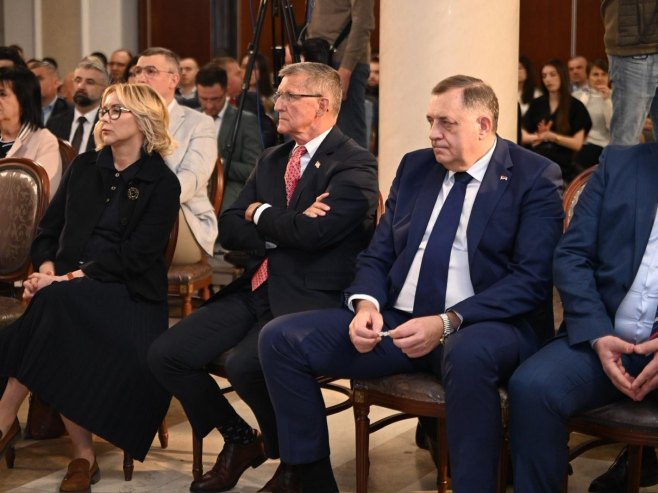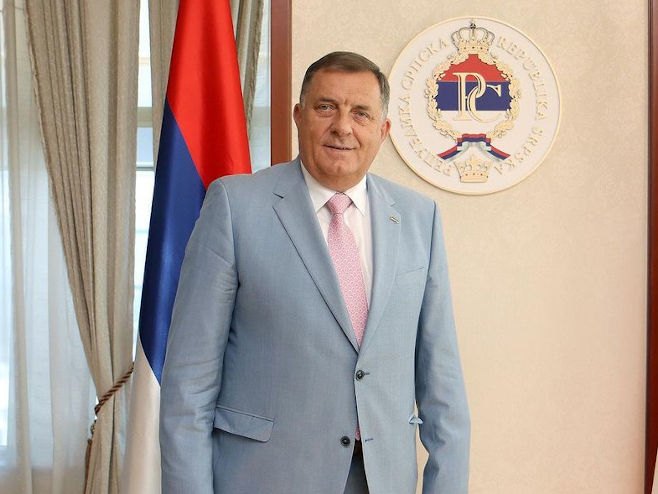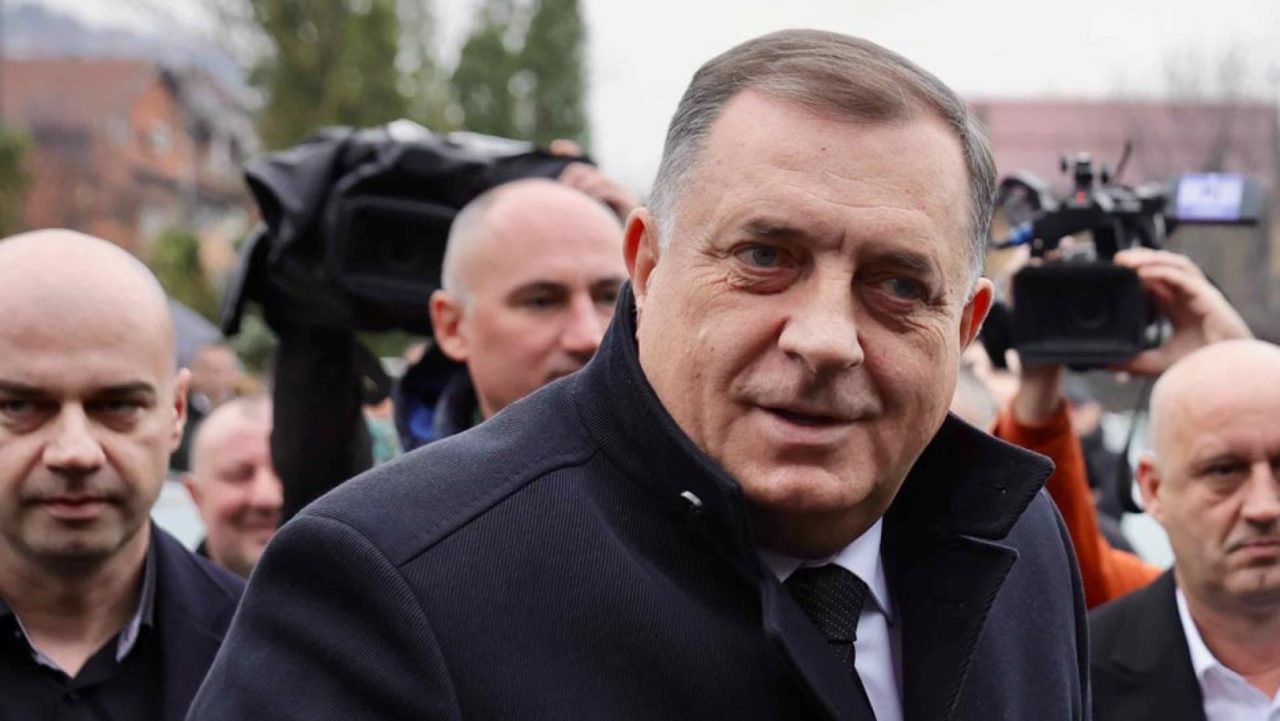The first news on the topic sounded trivial and benign: “The Ministry of Internal Affairs of Serbia announced that starting Monday, July 22, one uniformed police officer and one officer from the Criminal Police Department of Serbia will be stationed in Banja Luka, Foča, and Trebinje until September 1, working alongside their colleagues from Republika Srpska. Based on the Memorandum of Cooperation during the tourist season between the Ministries of Internal Affairs of Serbia and Republika Srpska, police officers from the Republika Srpska MUP will be stationed in Belgrade, Novi Sad, and Zlatibor during the same period, where tourists can contact them.” The announcement then listed specific phone numbers in Banja Luka, Foča, and Trebinje where Serbian MUP officers would be available, concluding with: “The Ministers of Internal Affairs of Republika Srpska and Serbia, Siniša Karan and Ivica Dačić, signed the Memorandum of Cooperation between the two ministries during the tourist season in Trebinje, marking the first implementation act of the Declaration on the Protection of National and Political Rights and the Common Future of the Serbian People signed at the All-Serb Assembly in Belgrade. Karan and Dačić agreed that this memorandum would enhance the operational cooperation of the two ministries during the tourist season.”
Occupation hysteria
In just a few hours, the banal technical information became the reason for another hysterical campaign from “political Sarajevo.” Influential patriotic “tweeters” (or “Xers”) opened the season, followed by institutional “usual suspects.” State parliamentarian Džemal Smajić dramatically stated: “Milošević’s student Dačić, with the consent of the silent ministers from the ‘trio,’ brings the Serbian police boot back to Bosnia,” rhetorically asking: “How much longer?” Željko Komšić and his party commented in their usual style: “We believe that the presence of members of the Ministry of Internal Affairs of the Republic of Serbia in Bosnia and Herzegovina further complicates relations between the state of Bosnia and Herzegovina and the Republic of Serbia. It is not in the function of regional stability and can have unforeseeable consequences given the clear overall political context.” Nermin Ogrešević from NES raised the stakes and took the issue to a global level: “Serbia’s actions in cooperation with the RS entity constitute an international crime.” Finally, the fundamental Bosniak party SDA declared: “The Serb state leadership, in cooperation with the authorities in the RS entity, continually destabilizes the situation in Bosnia and Herzegovina and the entire region (…) the deployment of Serbia police officers in Bosnian cities during the commemoration of genocide in Podrinje and Krajina is a provocative and brazen beginning of the implementation of the program adopted at the (All-Serb) Assembly.” In what seems like a parody, the only Bosniak politician with a normal reaction was the federal colleague of Karan and Dačić – Ramo Isak.
European practice
Let’s make a seemingly unrelated digression here. Do you remember where you were and what you were doing on July 6, 2011? That day didn’t deeply mark the world’s history. It was the time of the Arab Spring and the civil war in Libya, the European Union questioned credit ratings’ reliability after Portugal’s was downgraded, and then-Turkish Prime Minister Erdogan presented his new cabinet; these were some of the main news stories of that day. One of the dozens and hundreds of stories that appeared without much pomp was the agreement signed by then Croatian and Italian Ministers of Internal Affairs, Tomislav Karamarko and Roberto Maroni. The agreement highlighted previous successful cooperation, emphasized future goals, and specifically planned the “Safe Tourist Season” project, which involved deploying a certain number of Italian police officers in Pula, Split, and the island of Hvar. Karamarko noted that it was a logical and practical move considering the numerous Italian tourists visiting Croatia during the season, especially around the three mentioned destinations. Maroni said that if Croatia showed interest, Italy would gladly allow its police officers to be present somewhere in Italy. And that was it; no one made a story or scandal out of it.
The six marked
Returning to the present, judging by Ramiz Salkić’s reaction, he seems at least aware that this is not a significant global precedent. In his response, he claims: “This may be normal in normal countries during the tourist season, but in the light of Serbia’s centuries-old territorial aspirations towards Bosnia and Herzegovina (…) such moves exceed routine and ordinary cooperation in the interest of citizens’ security.” Let’s be serious, Serbia’s centuries-old aspirations towards Banja Luka, Foča, and Trebinje are nothing compared to Italy’s centuries-old aspirations towards Pula, Split, and Hvar. And while the Croatian public is aware that Italian extremists “eye” their former territories across the Adriatic, they also know that an occupation is not carried out with ten, twenty, thirty, or however many police officers. The agreement originally left reciprocity as an option because there’s no information that alongside the arrival of Italian police officers in Pula, Split, and Hvar, Croatian police officers went, for example, to Trieste, Venice, and Rome. Meanwhile, in the agreement between Karan and Dačić, we have the simultaneous departure of police officers from Republika Srpska to Belgrade, Novi Sad, and Zlatibor. Locations with the most tourists were statistically chosen, a practical arrangement was made, and it was declared aggression and occupation?! Six people in total are making aggression. Some people really love numerology. Six is divisible by three, three raised fingers symbolize Serbian nationalism, the Federation is ruled by the trio; nothing is coincidental, it’s a triple-finger triple pact, let’s all fight fascism.
If it weren’t sad, it would indeed be funny. In a country where, since its independence was recognized, foreign military troops from numerous countries from Bangladesh and India to America and Britain, England and France, Russia and Ukraine, to Austria and Hungary, have been present, the arrival of six police officers is declared a violation of sovereignty?! Everything was done publicly and according to protocol; whether someone likes it or not, Republika Srpska has its Ministry of Internal Affairs and can tomorrow sign a similar agreement with Montenegro, Croatia, or Turkey. The Federation of BiH can do the same. Despite all the media eruptions, people from Sarajevo, Mostar, or Tuzla come to Belgrade, just as Serbian citizens go to Sarajevo, Mostar, or Neum. Life has its logic, but who cares about life in a place where the logic of being eternal victims is more important than anything. As known, Ivica Dačić, to ease tensions, decided not to deploy police officers from Serbia in the three cities of Republika Srpska. If Sarajevo thinks this is a victory, that’s the saddest part of the whole story.
Source: Glas Srpske









